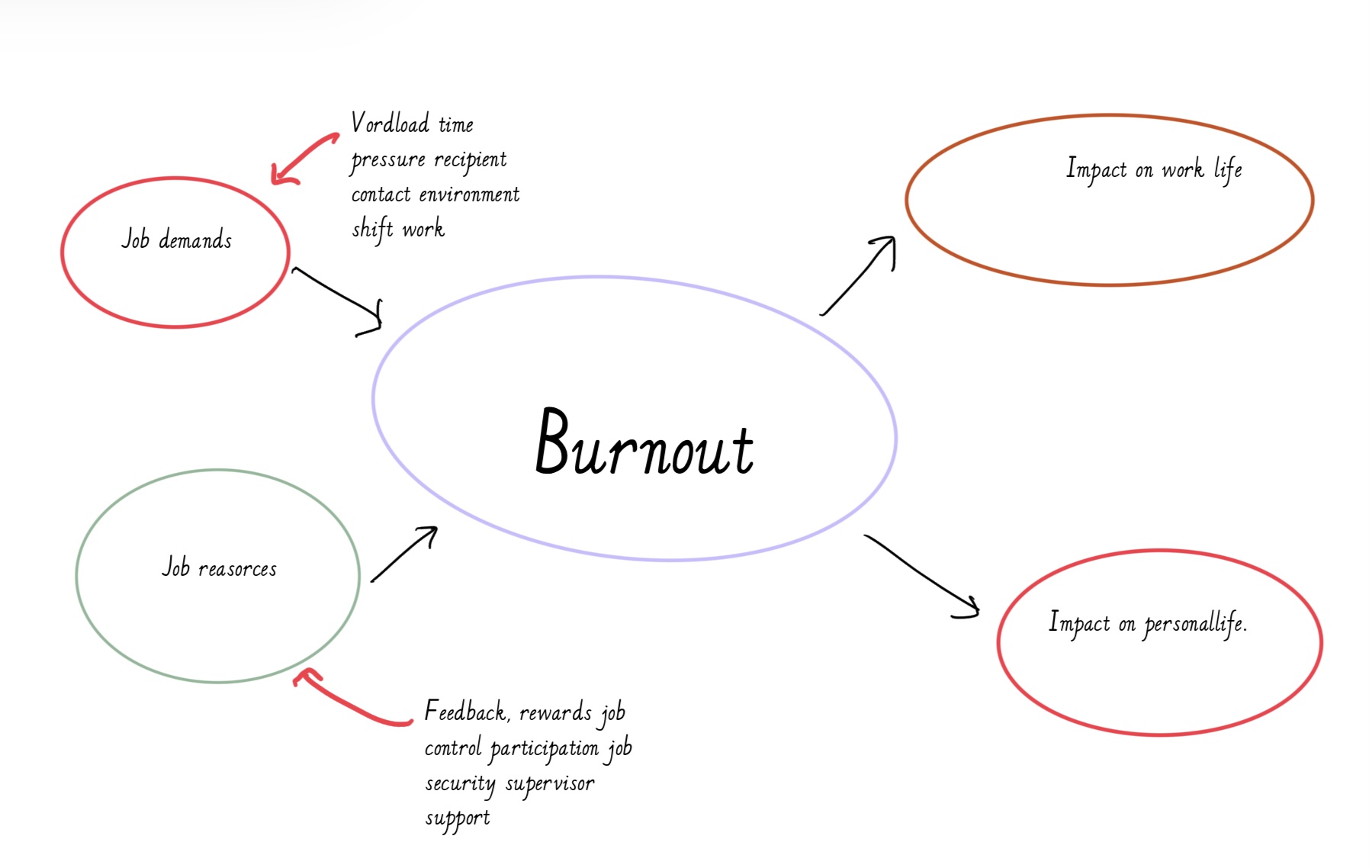Organisational psychology, wellbeing at work
1/28
Earn XP
Name | Mastery | Learn | Test | Matching | Spaced | Call with Kai |
|---|
No study sessions yet.
29 Terms
How many emp loyles experience mental health problems at work?
1/4
What percentage of adults experience a lapse inmental health
21%
What is burnout characterised by?
Emotional exhaustion, cyanosis um and detachment due to prolonged stressing the work place
What is depersonalisation?
Felling detached r or less caring about work.
What is reduced personal accomplishment?
Feeling ineffective and not having a good contribution to work
What causes burnout?
Cultural, systematic and environmental stressors
What is the cycle of burnout?
Strategies to control, change or avoid discomfort» short term relief» unhelpful in cong term» dissatisfaction, disconnection, exhaustion,(burnout) → feelings of stress overwhelm and emotional discomfort»starts again
What is the difference between burnout and depression?
Depression affects au areas of life, burnout affect professional areas,burnout can be managed but depression needs psychological intervention
What are treatments for burnout?
Stress management, bora place interventions improved work life balance.
What are the 4 occupational stress models?
transactional stress model
Conservation or resources theory
Job demands-reasorces theory
Also static load model
What are job demands?
Physical psychological, social organisational aspects of a job that require sustained effort and are associated with psychological and physiological costsnigh workload tire pressure and emotionally demanding intentions
What are job resources?
Aspects of the job that help employees meet these job demands reduce stress and promote personal growth
What are the impacts of burnout?

What are the signs of struggle?
Emotional distress, withdraws, attendance changes- performance, extreme behaviour managers roles
What are the 3 pillars of wore place mental health?
Prevention, intervention, accommodation
What is the IGLO model?
Individual, organisational, leader, group
What are the 5 stages in Nielsens organisational change?
Preparation 2 screening 3. Action planning 4 implementation 5 evaluation
What is preparedness/readiness for change?
This is when leadership communicates the vision for change and employees are informed why change ;s nessecary preparing organisational Structure and employees are critical
What is screening and designing the change?
This is when goals are established time and resources are allocated and planning of enhancement, should involve the employees
What is implementation lexeculation of the change?
This involves putting the change into action clear communication/monitoring is essential
What i evaluation /monitoring of the change?
Collect feedback and analyse wether the change has worked.
Reflection and learning
Organisation should be documented on the future efforts documented
What are 3 key themes Nielsen identified?
1. employee participation 2 mental health + wellbeing 3. Tailoring interventions
What are pre-post test designs?
Measuring outcomes before rafter intervention
What are 4 key outcomes
Employee wellbeing, productivity, job satisfaction, organisational outcomes
What. are 3 examples or interventions?
Mindfulness stress reductions, leadership training programs, flexible work arrangements
What are challenges in experimental workplace research?
Ethical considerations, practical constraints, genrelisability
What are 2 benefits of experimental research?
Causal relationships / evidence based practice